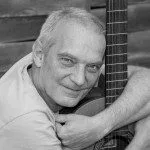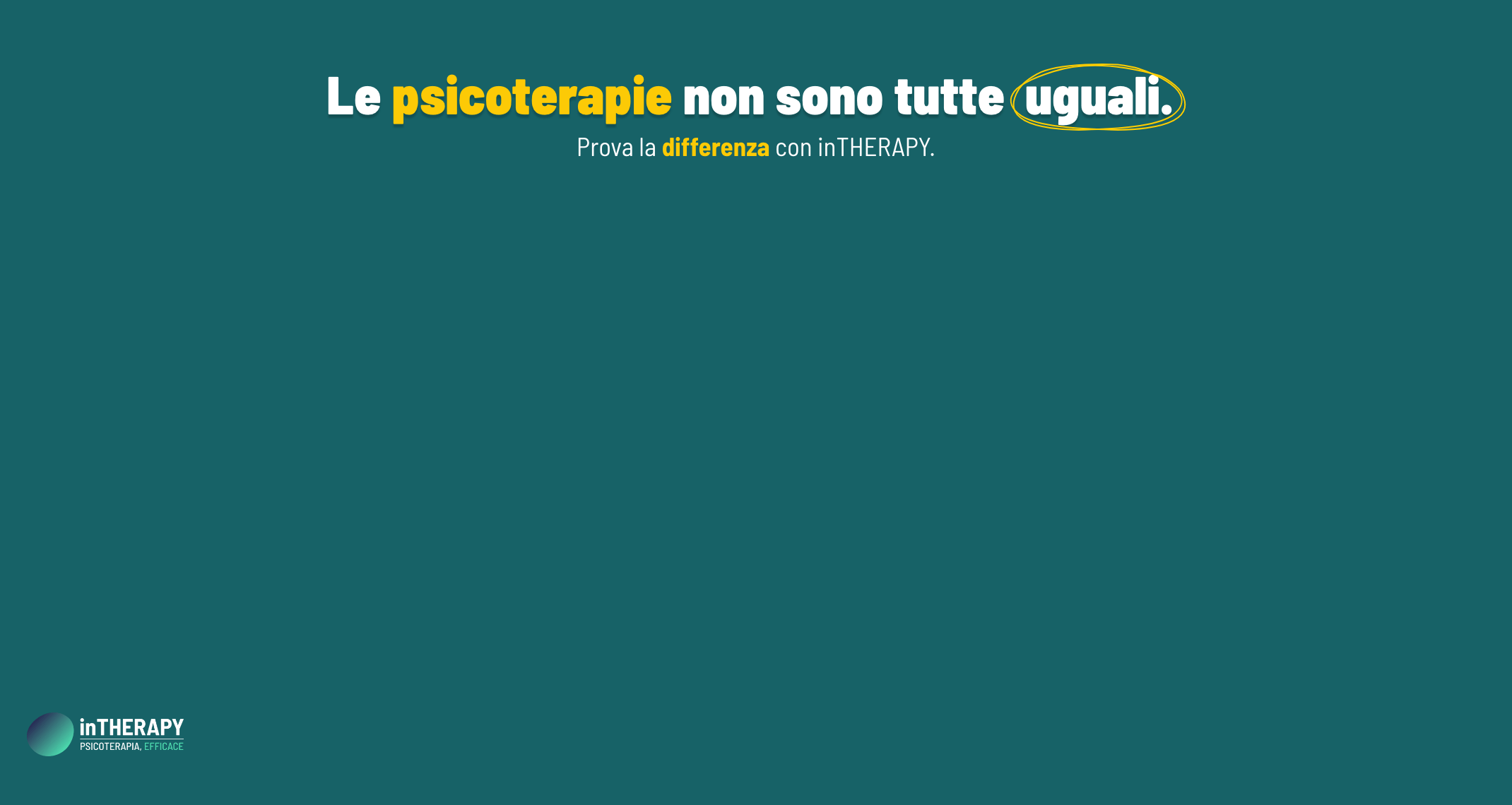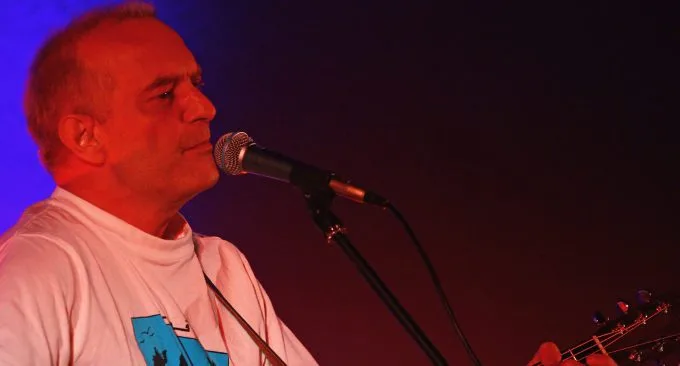Martin’s story is dramatically fascinating, full of rises and falls, like the bipolar disorder. In the eighties, Martin was diagnosed with bipolar disorder, which kept him away from the musical scene for twenty years. He is just come out with a new wonderful record titled Songs from inside, which includes songs inspired from his experience as a psychiatric patient.
I knew about the German guitarist and singer Martin Kolbe through the International Bipolar Foundation, a very active American charity which works for sensibilization and psychoeducation on bipolar disorder, and which gathers patients and relatives from all over the world.
Martin’s story is dramatically fascinating, full of rises and falls, like the bipolar disorder. In the seventies Martin was a famous guitarist in Germany, performing in acoustic duo with Ralf Illenberger, with whom he produced six records and played more than thousand gigs in forty countries. On Youtube there are some original videos of the duo, mostly from TV programmes, where the virtuoso performances, between fingerpicking and new age atmospheres (after the split up of the duo, Illenberger specialized in this musical genre) can be appreciated.
In the eighties, Martin was diagnosed with bipolar disorder, which kept him away from the musical scene for twenty years. He is just come out with a new wonderful record titled Songs from inside, which includes songs inspired from his experience as a psychiatric patient. Martin is presenting his music through the Bipolar Roadshow, a special tour that includes gigs at psychiatric conferences or for patients associations, giving hope to many people who struggle every day with depressive disorders.
The songs of the record have a very minimalist musical arrangement, which highlights Martin’s deep voice and guitar technique. The lyrics are poetical, but also very interesting from a psychiatric perspective.
For example in the song Come water Martin talks about a guy he met in the psychiatric hospital, who suffered from Obsessive Compulsive Disorder, with washing compulsions. Prayer is the suicidal mantra, that echoes in the mind of the depressed hopeless person, who considers how to commit suicide (A needle in my heart/ Poison on my tongue/ Fire on my skin/ Water in my lung). The music of this song, very repetitive and solemn, is well integrated with the lyrics and listening to it you get the effect of falling down and down. Family describes a manic episode in which a person can feel an euphoric sensation of brotherhood with every stranger he meets on the street. Something holding you, written with a friend, represents the depressive experience, the tragic downside (You wait for sunrise and a crystal sky/ That’s just a dream, better say good-bye… You say you’ve changed but it won’t last for long/ Nobody else is gonna make you strong). With such songs, we couldn’t ignore Martin Kolbe any longer!
Your story of ups and down is dramatically fascinating and can be very interesting for many people who struggle every day with mental disorders. Can you tell us more about it: from appreciated professional musician and the seven records with the acoustic duo with Ralf Illenberger, to many years of psychiatric problems and treatment and back to music with this new project, in which in some way you elaborated your experience.

When I was 17 a friend of mine recorded my guitar playing and singing and decided to produce a record of these tapes. The local radio station played one of these takes daily (an instrumental adaption of Paul Simon’s “Mrs Robinson”). From that point on things developed rather quickly and kind of naturally. While still attending high school I released two more solo records and played concerts and festivals at the weekends or during the school holidays.
In 1977 I met Ralf Illenberger, a guitar player living in a town next to mine. We discovered an amazing musical congruence and kind of fell musically in love with each other. After this meeting playing alone seemed to be so boring and the two of us felt that there no way round starting a guitar duo. Our first joint record was successful right away and the following 10 years were filled with studio work, extensive live performances (more than 1.000 concerts in about 40 countries on this planet), TV and radio shows.
After the first year of collaboration with Ralf I encountered my first bipolar episode. It started with a depressive phase (nowadays it surely would be called “burnout syndrom”) which was followed by a truly manic time that let led into a psychosis rather quickly – I could not handle at all what was going on with me. In a clinic they brought me back to earth with heavy medication and called this whole strange experience “crisis of adolesence”. Well. After that I had 4 so-called normal years until I faced the next episode in 1983 which was not as heavy and stopped by itself without being hospitalized and medicated. In 1987 the next burst happened and this time it was so heavy that I split from Ralf, almost split from my wife and kids and ruined my musical career for many years. At this point the diagnosis bipolar disorder was given. It was a learning process of 25 years all together from the first symptoms, the diagnosis 8 years later, then first neglecting it, slowly accepting the facts to finally being aware of early symptoms and – the most important thing! – wanting to react quickly in case of instability to prevent all those negative consequences of a mania.
Being a famous musician was in some way an obstacle for the treatment of your bipolar disorder?
Well, I was not really famous, not a household name or a big star. We had our true fans and followers but our music was too special to become hits, so the whole thing was more like a niche. In that respect being a musician did not matter much in the treatment.
Can you tell us something about your treatments? Drug treatment? Admission to psychiatric hospital? Psychological treatments?
My first mania was treated with Haloperidol which was effective but a horrible experience due to extremely painful cramps. During my next stay in a mental hospital it was Benperidol which was even worse. My third and last stay in a psychiatric clinic was in 1993 and at this occasion there was no medication at all because there was no mania (my ex-wife thought I was manic and let me be hospitalized).
After the diagnosis was given I was told to take Lithium which I did for about 6 months. Then I decided to abandon it because my emotional life was reduced to a minimum and – even more important – all my creativity was gone. In the meantime I have learned that Lithium works for a lot of bipolar people and they are not hindered in their creativity. Just in my case it has this effect. All the doctors I encountered after my diagnosis was given did not recommend the steady use of mood stabilizers since in between my bipolar episodes there always were long gaps of minimum 4 years. The plan was to interfere with acute medication in case of instability. This concept only works since 2003 when I encountered my so far last and most extreme mania. After that I seem to have found my personal way to handle my mood and energy swings.
I never had psychotherapy. After my first stay in a mental hospital it was recommended by my doctor in the clinic. I went to two interviews with therapists. The first one was a typical Freudian woman in her late sixties. Her first question was “How was your mother?” – it did not feel that I was in the right place there. Next I went to a rather young psychologist who asked me whether it was my idea or the doctor’s in the clinic to start a therapy. As the latter was true I decided not to go for that any longer.
What is the reaction of public to you Bipolar Roadshow gigs? Where do you usually play?
The reactions of the audiences was even better than we had expected. It seems our concept of spreading informations about bipolar disorders this way works perfectly. In this special case I do not measure success with the strength and length of applause or the number of encores demanded. Success means here how moved and touched the listeners were and the overwhelming and very intense personal reactions after the concerts showed that we had really reached them.
Can you tell us something about your CD Songs from the Inside? Had it in some way a therapeutic or cathartic effect on you? Can you make some comments on the lyrics of the songs and the topics you sing about?
Well, I would not use the audience as a therapist or try to sort out my personal problems by writing songs about them. The lyrics on this CD were written way after the situations they are referring to. My goal was to share my experiences and emotions with others, either to show people with similar backgrounds that they are not alone and you can get over traumatic life events or to tell all the so-called normal others something about psychiatry and its various aspects.
I think the lyrics speak well for themselves as they are realistic and point out things rather directly. For example, “Keys” is about being locked up in the closed section of a mental hospital, “Cage Birds” refers to three people I met there, “Holes” tells a story about a desperate roommate and “Prayer” is nothing else than the ongoing suicidal mantra that spins round and round in your head when you are depressive.
There are few studies about the relationship between creativity and bipolar disorders, mostly in classical composers (Beethoven, Schumann, etc.). In your own experience which is the relationship between your mood and your creativity?
That’s hard to say, really. I guess with this condition you are more sensitive and vulnerable than other people. Maybe this supports creativity. In a manic episode you are over-creative and it can cause real distress when you try to realize all those brilliant ideas that keep coming all the time. However, I discovered later that most of what I had written, composed and performed in such episodes was not very good as it was super-expressive and in a sober state of mind sometimes hard for me to listen to. On the other hand, in a depression nothing at all happens, there is no creativity in any aspect – my life and all kinds of musical sounds are more like a torture than a blessing.
What do you think about the influence of life events on bipolar disorders?
Of course I do not have any proof but I think there is a link between some very personal problems and hindrances in my life and the appearance of the disorder. The main point could be not being able to accept being homosexual and not being courageous enough to live it. A childhood as a son of a vicar in the sixties in a small village in the south of Germany might not have been the best starting point to a free and happy gay life. I am convinced that if you suppress such an essential part of yourself for such a long time it is very likely you develop some kind of disorder, including the possibility of a bipolar disorder.
And about psychotherapy or psychoeducation in bipolar disorder?
I know a lot of people with bipolar disorder who benefit a lot from psychotherapy although I myself never had it. From all I heard I draw the conclusion that behavioral therapy seems to be more helpful and promising than the classical freudian analysis-based therapy. However, I know too little about it to really make a statement here. I strongly believe that psychoeducation is a very important part on the way to cope with bipolar disorders: the more you know about the (early) symptoms and what you can do in case they show up the better can you deal with them and prevent a really bad outcome.
What about your collaboration with International Bipolar Foundation?
Muffy Walker, co-founder of the IBPF, contacted the German Society for Bipolar Disorders (DGBS) a couple of years ago. Since then our collaboration gradually grows. I met Muffy last winter and was impressed by her willpower and dedication. In spring 2014 we had a joint symposium at the ISBD congress in Seoul concerning the trialogical concept of the DGBS and advocacy in general, besides an IBPF webinar on the Bipolar Roadshow will take place on August 20th on the IBPF website.
Can you tell us about the stigma situation in Germany when your bipolar disorder was diagnosed and if it has changed in some way now?
I think – or at least I hope – that stigma very slowly but surely decreases. IF we all pull together! In my case it was more self-stigmatization than being talked down by others. After my first stay in a clinic I did not want anybody to know about it and kept it as secret as possible for the public. Well, of course there were situations and remarks that really hurt. For instance one of my sisters said “He better had a car accident and died than this.” Outch. Nowadays I have changed my attitude dramatically by speaking absolutely open about it to whoever wants to know about. I try to draw the attention of the media and I am glad that quite a lot of journalists take the chance to interview me for the press, TV or radio programmes. I am sure the best way to fight stigma is to talk openly about being a “looney” so that other people can see there is nor reason to be afraid of “us” or to be ashamed for having this condition. We did not choose it! Someday it should be as natural and normal to talk about mental illness as it is now to discuss diabetes or blood pressure problems. It is still a long way to go but we keep working on it.
In which way do you think music can be useful to promote mental health?
I cannot tell yet because my project is just too young. Things look very promising, though. I recently got to know a singer from England, Emily Maguire, who is bipolar herself and has just released a record with songs about her life and struggle. It is a very professionally arranged, performed and produced CD and I wish her all the best with it and a lot of success. I hope she will be part of the Bipolar Roadshow 2015!
The attempt of promoting the issues of mentally ill people via arts and especially music still is very catchy to me as you reach the audience on an emotional level which has a greater and longer lasting effect than listening to another scientific speech.
I get the impression that the bipolar disorder diagnosis is getting very popular on the media in the last years. Many rock-stars, actors and public figures do come out on that (sometimes to justify behavioural problems that are not linked to psychiatric problems). What do you think about that?
Well, most celebrities with bipolar disorder are still outed after their death (see Kurt Cobain or Amy Winehouse) or it is a mishap like in the case of Catherine Zeta-Jones: the information about her illness was sold to the media by a patient in the clinic she stayed. People like Jean-Claude van Damme, Sinead O’Connor or Stephen Fry still are the exceptions. I am waiting for the day when a famous sportsman or even a politician stands up and comes out with a fact that is no reason to be ashamed, confessing he/she is bipolar. This would help enormously to fight stigma and develop understanding. Meanwhile we have to go on on our peaceful crusade towards a more open, more human and brighter future.
ARTICOLO CONSIGLIATO:
Martin Kolbe e il suo Tour Bipolare (Bipolar Roadshow) – Intervista


